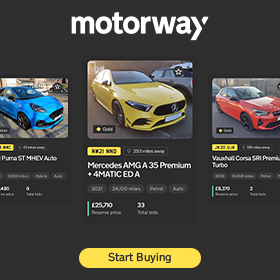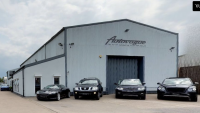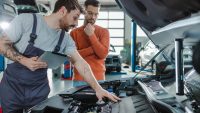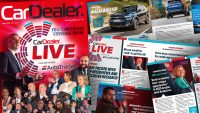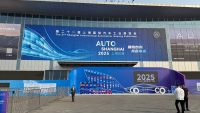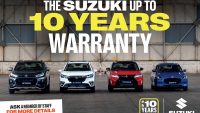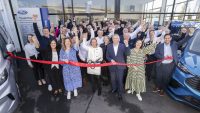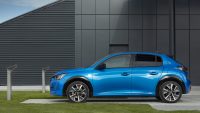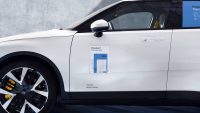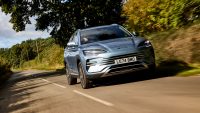News of higher interest rates, inflation and the cost-of-living crisis has dominated newspaper headlines over the last year with a focus on those on lower incomes – but the effects have rippled through to supercar dealers too.
From the way clients are funding high-end cars to residual values and supply-and-demand, the economic upheaval has caused profound change to the industry in a short time frame – although far from all of it has been for the worst.
In a series of exclusive interviews for this article, Car Dealer spoke to supercar retailers Amari Supercars, Romans International and Tom Hartley – all subjects of our Selling Supercars video series – to learn more.
For Tom Jaconelli, head of buying and marketing at Romans International, the context of Covid and Brexit is crucial to understanding the current situation, particularly regarding new cars.
Within that context, two factors in particular are key: 1) the increase of interest rates that were previously at record lows and 2) the squeeze on new vehicle production during the pandemic.
Jaconelli said: ‘For us it’s just going back to normal, whereas these last few years have been so abnormal and people who paid massive premiums have been getting burned.
‘In the middle of last summer people were paying £40-50k over list for a Porsche 992 Turbo S because there was such a supply shortage, and now those cars are back at list or just under.
‘Some people are just not prepared to take the loss.’
Raised interest rates have also changed both how buyers fund supercars, and the cars they buy.
‘In the £150-£250k bracket, people would historically buy on finance, and that market has definitely suffered because of interest rates,’ he added.
‘We’ve noticed more people downgrading, so previously 80-90 per cent of our business has typically been people upgrading to something newer and more expensive, but more are downgrading to free up money,’ Jaconelli says.
However, Simon Hunt at vehicle valuation experts Brego notes that not all ‘affordable’ supercars have suffered dramatically, citing a 2017 McLaren 570S Spider being valued at £104,000 last year, and dropping by a relatively modest £4,000 in the last 12 months.
In contrast, he flags up a Porsche 911 (992) GT3, which recently sold for £187,000, some £15k below Brego’s expected price, if still significantly above list.
Overall, though, Hunt sees the market as robust, despite the impact of higher interest rates, an impression based both on Brego’s analytical data and anecdotal evidence.
‘We regularly talk to lenders and they were still doing a tonne of business when they pushed rates to 12 per cent. One has now gone to 15 per cent,’ he tells us.
For Romans International, the finance mix has changed from the previous 45-50 per cent to around 25 per cent today, with an increase in those who do pay on finance opting for interest-only deals.
The upper end of the market also continues to thrive, Jaconelli noting ‘the million-pound plus market is stronger than ever.’
Supercar values – biggest fallers
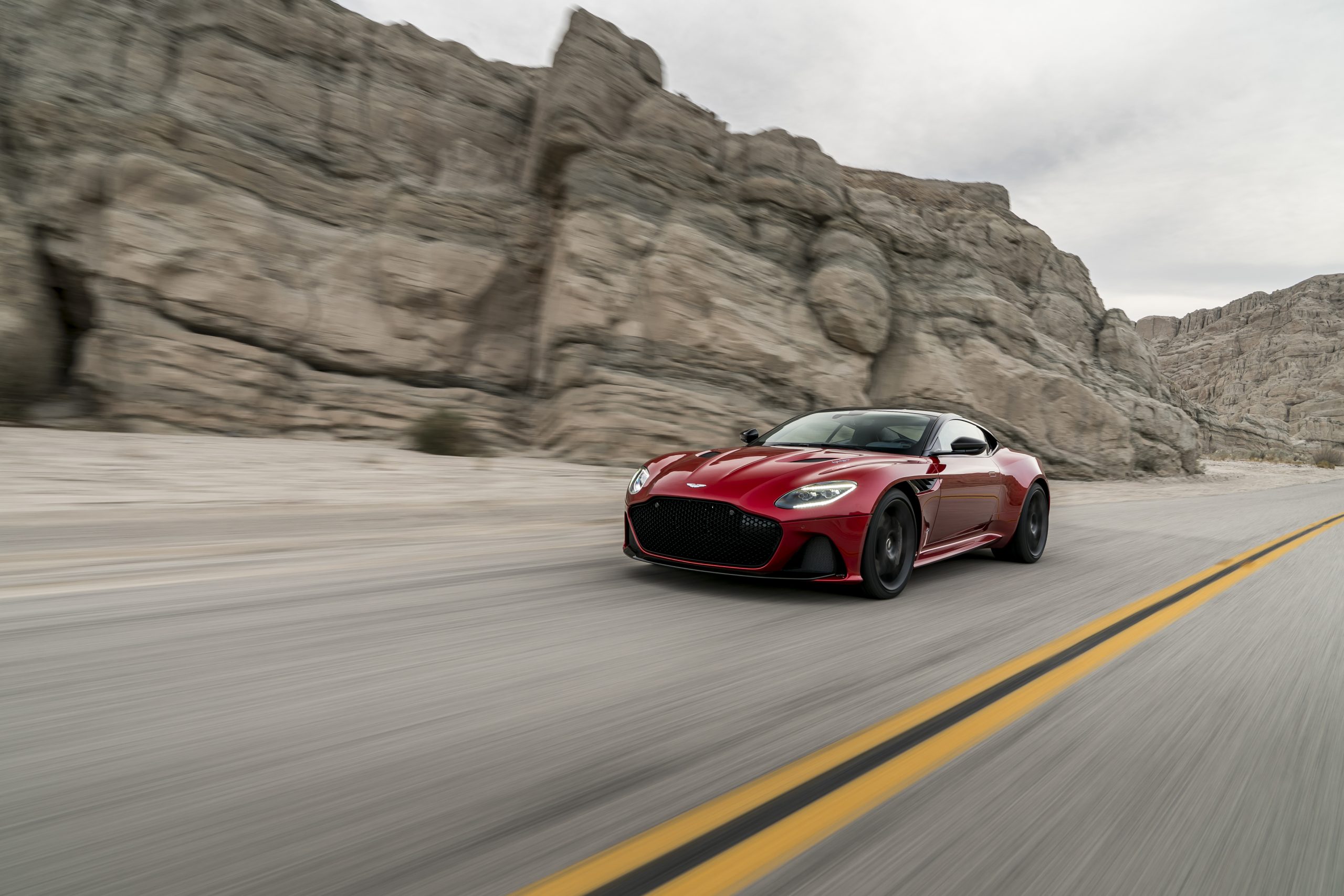
Source: Cap HPI data, last 12 months to August 2023
- Aston Martin DBS convertible – down 9.2% (£14,900)
- Ferrari Portofino – down 7.3% (£8,700)
- BMW i8 – down 5.9% (£3,100)
- Aston Martin DBS – down 5.1% (£7,300)
- McLaren 720S Spider – down 5.1% (£8,100)
- Ferrari 488 – down 4.5% (£6,400)
- McLaren 620R – down 2.7% (£4,100)
- McLaren 600LT Spider – down 2.1% (£2,600)
- Ferrari 812 Superfast – down 1.7% (£3,200)
- McLaren 720S – down 1.6% (£2,067)
Cap HPI’s latest data – supplied exclusively to Car Dealer – shows McLarens dominated the top 10 biggest fallers list. The British brand has four models in the list of supercars that lost the most money in the last 12 months.
Derren Martin, director of valuations for the firm, said that for comparison purposes the average fall for all cars during the same period was 2.9 per cent.
Clive Wilson, valuations editor at Cap HPI, added: ‘Although the used car market remains generally robust, the used supercar market is experiencing some turbulence, with wealthy drivers perhaps feeling the pinch more than they have previously.’
Tom Hartley, of the eponymous luxury, performance and classic car retailer echoes that sentiment.
‘There are lots of people and businesses out there making lots of money and wanting to buy supercars,’ he told Car Dealer.
‘Everything has got levels in life from a cup of coffee to a piece of art – and it’s the same with clients. When you deal with the clients at the level that I have built up over 50 years, they don’t know what a recession is.
‘If a car has got good history, good provenance, it will always be top dollar regardless of where the market is.
‘The guy who pays for the car on the nose or who borrows 50 per cent… he’ll still borrow and he’ll still buy. But the guy who puts the 10 per cent deposit down and borrows 90 per cent, that’s the marketplace that’s in a bit of a turmoil.’
Hartley also credits his ability to buy cars outright as key in safeguarding his business.
‘We normally buy our stock – of 70 cars, only four or five will be sale or return for very old school clients but it’s not a system I like to use, you’re tied in the middle,’ he says.
‘This way we’re in control of everything we do. For us, there’s very much “the market” and “the Tom Hartley market”. We work within our own gut feeling and we are able to arrive at what we feel is a market price.’
Hartley acknowledges enquiries have dropped by around 30 per cent but views this as a positive in weeding out time-wasting calls. He also acknowledges some prices have fallen.
‘When the market moves, it’s a chain reaction,’ he says.

‘There is a price move and obviously, I won’t say I get it right all the time. We have cars that we’ve put more money into than what they’re actually worth, but as an entrepreneur I get really excited because of some of the opportunities out there and there’s always an upside to the downside – you’ve got to take advantage of having the cash power to be able to buy stock.
‘Most people just now in industry, including main dealers, would probably not want to offer to buy a car. That’s not what we do. Wherever the marketplace is, we will always put our hand up and make an offer.
North West-based Amari Supercars also buys all its supercars outright. Boss Sheikh Amari credits both this and its ability to deal direct with finance companies as key to its continuing success.
‘People are still buying and paying premiums for cars,’ he says. ‘But it’s important to remember that previously we’ve had a massive jump of 25-30 per cent on a lot of cars, so it doesn’t mean prices are falling down right now, they’re just being slightly corrected by that extra one or two per cent. But for us that is typically being made up on the finance.’
Amari, however, also notes that finance rates of around 13 per cent have been enough to persuade prospective clients to pay in cash, removing that buffer.
‘I’d rather not give a cash buyer a cash discount because we make profit on finance, but because we buy our cars outright rather than with stocking loans, and because we deal direct with finance companies, that gives us the flexibility to do a package that suits people’s needs for that car – we can now get people into products at 9.5 per cent,’ he explains.
Like his contemporaries, Amari notes the current climate does make it harder to sell more affordable supercars – typically those part-exchanged by clients looking to upgrade.
‘The £100,000 range of vehicles are a little bit difficult,’ he says.

‘You’re not appealing to the super rich, you’re appealing to the people that can just about afford it, maybe making £150,000 pounds a year and living in a £500,000 house, but we also have crypto-millionaires walking in wanting to pay in cash, and plenty of businesses are going up in value as interest rates rise – the rich are still getting richer!’
Amari cites two LaFerrari Apertas that his business recently sold as both an example of market health and his buyers’ differing approaches to funding in current conditions.
‘We brought two cars back into the UK from Hong Kong,’ he tells us. ‘One was sold to a UK client in London, and he did a 50/50 deal on finance.
‘The other LaFerrari was sold to another UK customer and he bought that outright and took it to Monaco. We’ll soon have a Bugatti Chiron on sale for around £3.1m and we’re really excited to market that car. It’s a very strong market right now.’
As Amari sums up: ‘The super-rich are not quibbling at all, they are still buying the cars.’
Nonetheless, there’s no doubt that even the supercar market has felt the impact of the cost-of-living crisis.











